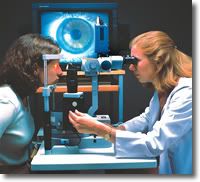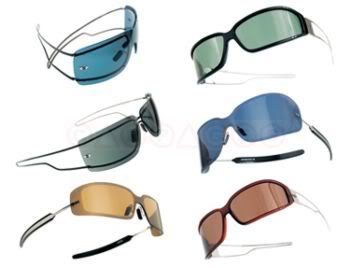The global initiative, Vision 2020: The Right to Sight, established by the World Health Organization (WHO) and the International Agency for the Prevention of Blindness, has created valuable and effective collaborations of organisations involved in a wide range of eyecare and community healthcare activities aimed at the elimination of avoidable blindness and impaired vision.
Vision 2020's major priorities are cataract; trachoma; onchocerciasis; childhood blindness, and refractive error and low vision. These have been selected not only because of the burden of blindness that they represent but, also, because of the feasibility and affordability of interventions to prevent and treat these conditions.
It is only recently that uncorrected refractive error has achieved prominence as a major cause of functional blindness and significantly impaired vision, as a result of landmark population-based studies in adults, children and in post-cataract patients.
Apart from individuals who have taken an active role in the elimination of diseases such as onchocerciasis or have been in cataract teams, optometrists have had little opportunity to take part in the front line elimination of four of the major, preventable blindness-producing conditions targeted by Vision 2020. The realisation of the impact of uncorrected refractive error has provided the opportunity for optometry to play a major part in alleviating vision loss for those most in need.
The need to mobilise optometry to deal with uncorrected refractive error has been accompanied by the possibility of better integration of optometry into prevention of blindness in general, with some major benefits in areas such as:
- Teaching eye care personnel, especially in refraction and low vision care
- Providing screening and vision care services at secondary and tertiary levels
- Detection and management of potentially blinding diseases such as cataract, diabetes and glaucoma
- Research into the understanding of global eyecare needs and solutions, especially in vision correction and vision care service delivery
- Building economic and logistical models of self-sustainable eyecare.
Impact of Uncorrected Refractive Error
Visually disabling refractive error affects a significant proportion of the global population, occurring in both genders, in all ages and in all ethnic groups.
The most common cause of visual impairment, and the second leading cause of treatable blindness, uncorrected refractive error has severe social and economic effects on individuals and communities, restricting educational and employment opportunities of otherwise healthy people. The duration of the effect is also significant – refractive error can account for twice as many blind-person-years compared to cataract, due to the earlier age of onset.
The need is very great for both children and adults. Studies have shown that refractive error in children causes up to 62.5% of blindness (less than or at least 6/60 in the better eye) in
The burden of refractive error is set to grow alarmingly due to an increase in myopia in both the developed and developing world, especially in urbanized East Asians, such as the Chinese populations in
Refractive Error and Vision 2020
Conclusion
It should not be necessary for any child to struggle in school, to learn with an uncorrected refractive error. Nor should any older person be called upon to spend thirty or forty years without glasses, to see to read or sew or to manage a job. Optometry and the optical industry in its broadest sense should be able to find the financial resources to give this simplest gift of sight.
Preventable blindness is one of our most tragic and wasteful global problems. Optometry is an essential part of the team that will eliminate this tragedy, by understanding global eyecare needs and delivering effective and sustainable vision care to people in need, thereby ensuring their fundamental right to sight.



